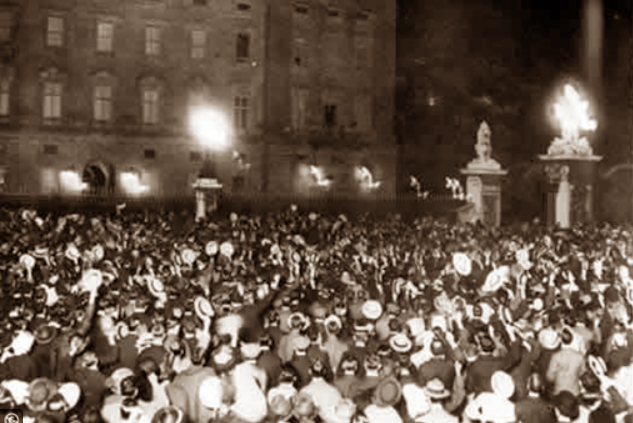 FACT FILE
FACT FILE

The First World War began on 28 July 1914. When Great Britain declared war on Germany on 4 August 1914, crowds gathered outside Buckingham Palace.
How did people respond to the outbreak of the First World War?
Was is a time of glory or a time of grief?
Dr Catriona Pennell from Exeter University is convinced that we have to rethink 1914. In the past, many historians believed that people in Germany, France, Austria-Hungary, Britain and the British dominions* greeted the war with joy and patriotic enthusiasm. They wrote about flag-waving crowds and young men marching through towns with toy rifles, full of excitement. But was it really like this?
It is true that in Britain 850,000 young men had volunteered to serve in the army by December 1914. Some responded to the war in a naively excited way and thought becoming a soldier would be big, glorious adventure. The general reaction, however, was more complex. Among the British population there was a mixture of shock, grief, excitement, anxiety and fear. Feelings changed on an hour-by-hour, day-by-day basis and multiple feelings were experienced simultaneously.
Dr Annika Mombauer agrees that it is a myth that all over Europe people were ready to fight for their Kaiser, King or Tsar. The British newspaper The Guardian, for example, reported on 4 August 1914 that there were "wild, enthusiastic cheers" outside Buckingham Palace after it had been annonced that Britain had declared war on Germany, followed by "clapping and cheering". Socialists, however, had organised an anti-war meeting in Trafalgar Square only two days before.
In Germany more than 100,000 people protested against the war in July 1914. According to Dr Jeffrey Verhey only a small minority of the population was enthusiastic about the war, especially university students and members of the upper-class. German farmers and workers, however, were extremely worried about what would become of their families. For them there was no reason for jubilation.
Annotations:
dominion: a country that was part of the British Empire but had its own government, for example Canada or Australia
Sources:
Dr. Catriona Pennell, Rethinking British Volunteerism in 1914: A Rush to the Colours? [Oxford University podcast,]
Dr Annika Mombauer, War enthusiasm, The Open University, 14th January 2014
Barbara Galaktionow, Allgemeine Kriegsbegeisterung ist eine Mär. Süddeutsche Zeitung, 6. August 2014
Illustration:
Crowds outside Buckingham Palace on 4 August 1914. This is photograph Q 81832 from the collections of the Imperial War Museums is in the public domain.
Owl, Open Cliparts, public domain.